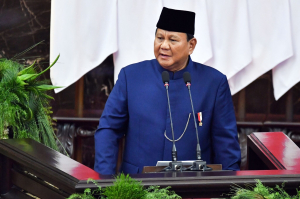Indomie products withdrawn from Malaysia, Taiwan, carcinogenic substance detected
Indomie products from Indonesia were withdrawn from the Taiwanese and Malaysian markets after the discovery of traces of ethylene oxide (EtO), a carcinogenic compound. However, currently, there is no international regulation from FAO regarding the maximum level of EtO.
At least two countries have found cancer-producing compounds in Indomie Special Chicken flavor, which have temporarily withdrawn the product variant for consumer safety.
Tulus Abadi, Chairman of the Indonesian Consumers Foundation (YLKI) said that he had asked BPOM to immediately provide clarification. Although, the final results to be traced later are nil. BPOM may have to expand the sampling test for Indomie with different variants and other batches.
Abadi considered BPOM's role as very important to ensure consumer safety because it is necessary to have the audit results as soon as possible from BPOM to be disclosed to the public.
"BPOM needs to ascertain whether the export products are contaminated with carcinogenic substances when they are produced in Indonesia. BPOM also has to make sure whether these are exports only or distributed in Indonesia?" explained Abadi on April 26, 2023.
Abadi asked BPOM to be able to equalize the standards for ethylene oxide contamination in food with other countries so that there were no differences in standards.
In addition, Abadi admitted that it would be best for the Indomie producer, PT Indofood Sukses Makmur Tbk, to immediately disclose the raw materials for the spices used in their products. This is necessary in order to facilitate tracing whether the raw material used has a carcinogenic compound, ethylene oxide.
Meanwhile, Indofood opened their voices on the issue of finding dangerous content. The company claimed that it has followed all the provisions of the Indonesian Food and Drug Supervisory Agency, and other countries; and ensured that Indomie products comply with the provisions of the destination country.
"Audits and investigations must be carried out. BPOM must ascertain whether this is only for exports or circulating in Indonesia as well," said Abadi on April 27, 2023.
"In principle, we follow BPOM regulations and FDA regulations from countries that import our products," said Francis Welirang, Director of Indofood April 25, 2023.
Currently, the Codex Alimentarius Commission (CAC), an organization under the Food and Agricultural Organization (FAO) of the United Nations, has not regulated maximum residue limits for ethylene oxide (EtO) and 2-chloroethanol (2-CE). Meanwhile, in Europe, it has a standard of 0.01 to 0.1. Meanwhile, several countries still legalize EtO such as the United States, Canada, South Korea, and Japan. However, the guidelines from the organization in 2019 stated that if there is no maximum limit for the level of contaminants, a limit of 0.001 mg/kg or 1 microgram/kg will be used. Meanwhile, Indonesia still allows EtO doses through BPOM regulation number 229 of 2022, with a maximum of 0.01 ppm. "This means that the EtO content in food ingredients in Indonesia is legal," Abadi said.
Meanwhile, each country's parameters for EtO have different maximum limits. Abadi stated that he must remain vigilant if the standard parameters in Indonesia lag behind those of other countries. "Findings of a hazardous substance are continuously developing. One day it may not be declared dangerous, but because there are new findings it is considered dangerous," said Abadi.
Abadi suggested that BPOM revise and follow countries such as Taiwan and Malaysia. "So the existing technical regulations regarding ethylene oxide health risk mitigation must be revised, or upgraded. The policies of the Taiwanese government, as well as Malaysia, should be an example," he concluded.
Already have an account? Sign In
-
Start reading
Freemium
-
Monthly Subscription
30% OFF$26.03
$37.19/MonthCancel anytime
This offer is open to all new subscribers!
Subscribe now -
Yearly Subscription
33% OFF$228.13
$340.5/YearCancel anytime
This offer is open to all new subscribers!
Subscribe now






